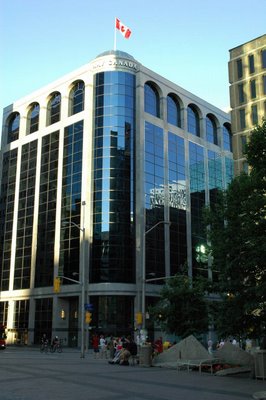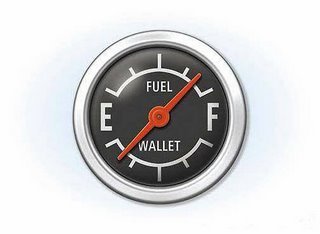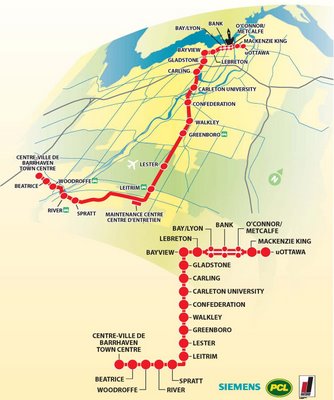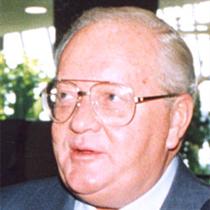Harper at G-8 Seeks Russian Gas Contracts
 Canadian Prime Minister Stephen Harper, in his first appearance at a Group of Eight summit in Russia, is leading efforts by the world's biggest economies to gain greater access to Russian natural gas, potentially triggering more than C$6 billion a year of contracts for Canada.
Canadian Prime Minister Stephen Harper, in his first appearance at a Group of Eight summit in Russia, is leading efforts by the world's biggest economies to gain greater access to Russian natural gas, potentially triggering more than C$6 billion a year of contracts for Canada.Harper will make the case for Russia to open up its oil and gas reserves to investment at the 3-day St. Petersburg meeting that starts tomorrow.
Russian President Vladimir Putin, who says energy security is the summit's chief concern, is resisting pressure from the US and Canada to hand more control of its assets to private investors. Canada, which aborted its experiment with price controls and state ownership of the energy industry two decades ago, has been highlighting its success at attracting investment.
Canada hopes to turn itself into a key transit point for liquefied natural gas shipped to North America, in part by allowing gas companies to bypass more stringent regulatory requirements along the US's heavily populated eastern seaboard. At least eight Canadian gas projects are scheduled for construction by the end of this decade.
Some are struggling to find supplies. The Woodlands, Texas- based Anadarko Petroleum Corp. had said it was slowing construction of a gas terminal in Nova Scotia because of supply concerns, before announcing last week it was selling the project to a private equity business.
Petro-Canada and Madrid-based Repsol YPF SA, both developing gas terminals in eastern Canada, are in negotiations with Moscow- based OAO Gazprom, the Russian state-run company that extracts a fifth of the world's gas, to secure supplies of liquefied natural gas.
Chevron Corp., based in San Ramon, and Houston-based ConocoPhillips are among the five companies being considered by Gazprom for a role in the Russia's $20 billion Shtokman project, which plans to start supplying LNG to North America by 2011.
Canada is alone among the world's biggest economies with the reserves and authority to speak on the issue. The country is the second-largest exporter of natural gas behind Russia, and ninth- largest exporter of oil.
Like Russia, Canada's economy is in the midst of an energy boom as commodity prices soared. Oil prices are up 28 % from a year ago and futures touched a record $78.40 a barrel in New York today.
The cash flowing into Russia from those energy exports makes it harder for the West to make its case. Russia last month raised the barrier for investment from abroad in its oil and gas sector under a draft law that would bar foreigners from controlling larger fuel deposits.
Harper can point to Canada's promising energy outlook as an example for Russia to follow. The rise in oil prices has been stoking interest from Chevron, The Hague-based Royal Dutch Shell Plc and others, particularly in Alberta's tar sands. Businesses are set to spend about C$73 billion in the next 20 years to boost output in Alberta alone, according to the province's energy Minister.
The investments will bolster Canadian oil output by more than 80 % to 4.6 million barrels daily by 2015, the Canadian Association of Petroleum Producers estimates.



















